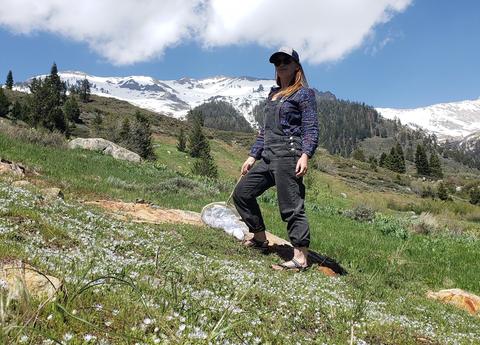Hollis Woodard, an assistant professor of entomology, has won a coveted award from the National Science Foundation to study the genetic underpinnings of bumblebee queen behavior.
Queens start off as solitary insects, looking for a place to nest. After finding a spot, she lays eggs and collects food to feed the brood. This continues until the first group of workers hatch and take over the queen’s food gathering and feeding duties.
“We know that the desire for bees to collect food for the nest can be driven by the same internal cues signaling that they’re hungry,” Woodard said. “How do queens balance taking care of themselves and taking care of the group? Do they do both with one set of genes controlling both behaviors, or have they evolved new genes for this?”
The $900,000 Faculty Early Career Development award, known as the CAREER award, will enable the Woodard laboratory to answer questions like these. Her group will do experiments to find out whether there are genes that regulate key moments in the life of queens as they found their nests.
Funds from the award will also support two paid undergraduate researchers in her laboratory, as well as community college transfer students. They will also enable the creation of videos that will allow students to study bumblebee behaviors.
The CAREER is NSF’s most prestigious award. It lasts for five years and supports early-career faculty who have the potential to serve as academic role models in research in education.
Woodard is already serving as a role model and mentor to her students. She won UCR’s 2020-21 Chancellor’s Award for Excellence in Undergraduate Research and Creative Achievement, as well as an Early Career Award and, previously, a Student Mentoring Award from the Pacific Branch of the Entomological Society of America.
